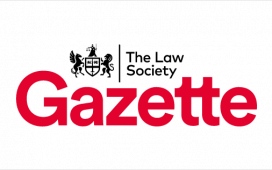Bosses should be banned from the “improper” use of non-disclosure agreements (NDAs) for low-paid workers in the service, retail or hospitality sectors, a former cabinet minister has said, as she calls for an end to a two-tier system for victims.
Louise Haigh, the former transport secretary, has urged MPs to look beyond high-profile cases linked to the #MeToo movement and advocate for workers in insecure employment who may not have “the means and the confidence to pursue their employers through the courts” to be able to challenge the NDAs.
Haigh is due to tell her colleagues in a Westminster Hall debate on Wednesday: “If mental health charities are exploiting this practice to discriminate against people with mental health issues then we have to accept that it is a serious problem in every type of workplace in this country.”
Last month, the Labour MP tabled an amendment to the employment rights bill that would bring an end to the widespread misuse of NDAs. She invoked parliamentary privilege during the debate on the legislation, to reveal the use of NDAs at ITN to cover up cases of workplace harassment.
Haigh is campaigning for the government’s policy on NDAs to be changed so it aligns with existing protections those employed in higher education institutions receive.
She noted the Higher Education Act 2023 prevented universities from entering into NDAs with staff, students or visiting speakers in regards to complaints of sexual misconduct or harassment.
Haigh was due to share chilling testimonies from low-paid workers who have been affected by the practice.
She would discuss: “The woman who was raped by a colleague at work but had signed a confidentiality clause that prevented her from discussing the issue even with medical professionals made it impossible to recover from her trauma.
“The employee who signed an NDA on leaving her workplace and has since been effectively blacklisted as her former employer is undermining her to prospective employers whilst she cannot tell her side of the story.
“Or the woman who told about the mental health charity she works for, which has discriminated on disability grounds against at least four people in the last year that she is personally aware of. Three of them have signed an NDA, she is bravely pursuing them through the courts because she believes it’s the only way to get justice.”
Statistics from the Can’t Buy My Silence campaign found 100% of NDAs or confidentiality clauses were written broadly. It means workers who may not think twice about signing their contracts may unwittingly overlook the broadly drafted confidentiality clauses that Haigh says “go far further than is require to protect commercial confidentiality or trade secrets”.
Haigh is due to say: “Let’s not let this opportunity pass us by. Let this Labour government lead the way on protecting victims and survivors in the workplace and finally bring an end to legalised abuse.”
The co-founder of Can’t Buy My Silence Zelda Perkins said: “The government has an opportunity to put Labour values into practice by legislating to protect workers’ rights and remove barriers to work by taking action on abusive NDAs. The current two-tiered situation, where only workers in higher education are protected from abusive NDAs is untenable – all workers deserve protection from being silenced in the workplace.”











